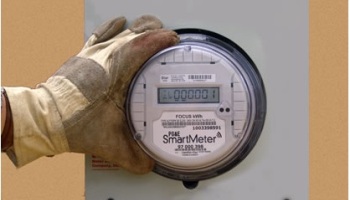Europe To Get 100 Million Smart Meters By 2014

The UK, France and Spain will be the next countries to deploy meters in large numbers, according to analysts
As the UK government prepares to release its own study into how deployment of smart meters and grids will progress in the country, a new report claims that the devices will be deployed in huge numbers across Europe over the next five years.
The Department for Energy and Climate Change is set to release its proposals for the roll-out of smart meters in the UK this week as part of the annual energy statement. Experts have predicted that the coalition may opt to bring forward the deadline for the deployment from 2020 to 2016.
 Meanwhile, research firm Berg Insight has released its own findings into the uptake of smart meters in Europe, claiming that the installed base of electricity meters will grow by around 17.9 percent between 2009 and 2015 to reach a total number of around 111.4 million.
Meanwhile, research firm Berg Insight has released its own findings into the uptake of smart meters in Europe, claiming that the installed base of electricity meters will grow by around 17.9 percent between 2009 and 2015 to reach a total number of around 111.4 million.
According to the Berg report, France, Spain and the UK will be the next countries in Europe to kick-off major roll-outs of smart meters, following initial deployments in Italy and the Nordic Region.
“In the past year, EDF, Endesa and Iberdrola – three of the absolutely largest electricity network operators in Europe – have launched large-scale pilots in France and Spain, respectively. Next year, these deployments will evolve into nationwide rollouts in these countries”, said Tobias Ryberg, senior analyst at Berg Insight.
“On top of that, the UK’s largest electricity and gas retailer British Gas has launched the first major smart metering project for residential customers in the country. These developments in combination with rollouts in several other European countries will drive strong market growth over the next five years.”
Educate Consumers
Commenting on the UK roll-out, Rick Hanks, Smart Meters Lead at management consultants Accenture, said it was important that time was taken to educate consumers on how to use the devices, or the project could be a failure.
“The UK smart meter rollout will require utilities companies to not only install meters, but also educate consumers on how to get the most out of the new technology and how to change their energy usage habits,” he said.
Hanks also said it was important to explore different options when it came to the infrastructure used to connect the meters. “If broadband is relied on exclusively to deliver new smart meter services, this could prevent universal services as one third of the population do not currently have broadband access,” he said.
BT recently announced its involvement in a bid for the UK smart meter project, which will see a combination of its broadband network and long-range radio technology used to connect to the utilities information systems.
Security Second Place
However, the optimistic predictions of the analysts and the ambitious timetable proposed by the government are at odds with the views of some insiders who point to the slow-uptake of the devices so far, as well as the security implications of rushing the roll-out.
Security experts have warned that the small window of time the US has put in place for the funding of its own deployment of devices may well mean that protecting smart meters takes second place to getting them in homes and businesses.